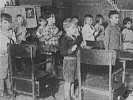
|

CSE 527, Au '07: Assignment #1, Due: 10/10/07 |
|
 CSE Home CSE Home |
 About Us About Us |
 Search Search |
 Contact Info Contact Info |
Required Reading: Lawrence Hunter, "Molecular Biology for Computer Scientists," Chapter 1 of Artificial Intelligence and Molecular Biology Lawrence Hunter, ed. AAAI press, 1993. (Also here.)
If you already happen to have a good background in molecular biology, contact me; we can arrange a useful substitute, e.g. to refresh your programming or statistical skills.
Post a short note about it. In your note, tell us at least the following: (a) one thing you found particularly surprising, (b) one thing that you are curious to learn more about and (c) one statement of "fact" that you think has since been proven to be false (the paper is over 10 years old; most of it is rock solid, but not all).
You post your reviews by directly editing the course Wiki page:
Brief instruction on how to edit it are included there. Either CSE or UW netid should suffice to edit it, if you enter with the appropriate link above. (It's the same page, just two different authentication methods.)Free reading: Find and read additional materials on some topic that you feel amplifies what you learned from Hunter, goes deeper into one of the topics, covers extra stuff, corrects Hunter's occasional errors based on more modern data, etc. Can be one or more articles, technical papers, web pages, book chapters or whatever, totaling 15-20 pages. Anything from The Cartoon Guide to Genetics to Nobel prize-winning work is fair game.
Post a full citation, with URL if possible, to what you read, together with a few sentences about it/them. E.g., give me a critique of it for meeting your needs (e.g., need more bio/CS/stats background, etc.). Whom would it have been good for, if not you? Highlight something from it that you found especially interesting or surprising. If you read the same article as someone who previously posted, it's fine to agree/disagree (politely) with their assessment of the article, but say why, not just "me too".
In short, I want you to create an annotated bibliography of papers potentially useful to others in deciding what to read to get started in computational biology (depending on their background). The examples included below all happen to be online papers, but that's not a requirement.
Extra Credit: The technical vocabulary in bio papers is dense and daunting to non-bio students. Websters and Wikipedia can help, but there are doubtless better sites with glossaries and short, gentle introductions to these concepts that don't suffer too much from, e.g., the curse of recusive jargon. If you find one you like, post a link and a sentence or two about it.
Your free reading may come from anywhere (online or not). The following random starter suggestions are gleaned from multiple sources, including past student recommendations. I haven't even clicked all the links, let alone read them all, so follow your own instincts as to whether they will be useful to you. The course schedule page also has some background reading suggestions.
|
Computer Science & Engineering University of Washington Box 352350 Seattle, WA 98195-2350 (206) 543-1695 voice, (206) 543-2969 FAX [comments to cse527-webmaster at cs.washington.edu] | |